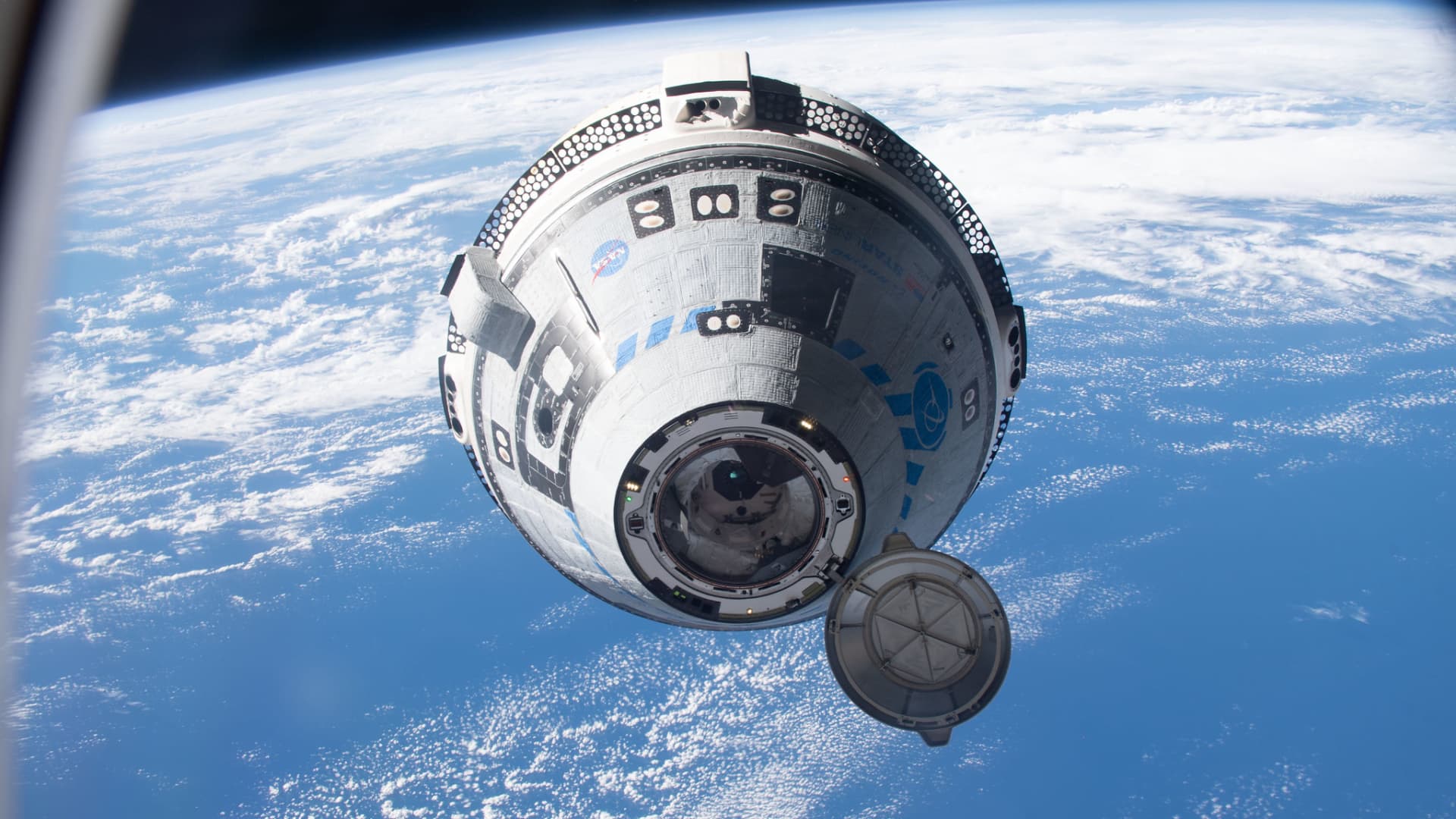“Boeing’s Starliner losses total $1.5 billion with NASA astronauts still waiting to fly” by Michael Sheetz and Leslie Josephs at CNBC.
Key points:
- Boeing’s latest charge on its Starliner astronaut spacecraft brings the program’s overrun costs to $1.5 billion to date.
- The aerospace giant last month decided to indefinitely delay the first crewed Starliner launch.
- Since 2014, when NASA awarded Boeing with a nearly $5 billion fixed-price contract to develop Starliner, the company has recorded losses on the program almost every year.
“$257 million charge in the second quarter” of this year. It was going to launch in July, “But Boeing discovered two new problems with Starliner and called off the launch to correct the issues.”.
Still, Boeing CEO Dave Calhoun said on an earnings call Wednesday that the manufacturer is “in lockstep” with NASA on Starliner development…
Boeing recorded other losses in its defense, space and security unit for the second quarter: a $189 million loss in the T-7A trainer jet program and $68 million charge on its MQ-25 unit.
Boeing last year announced additional losses on the Air Force One program, bringing charges on the contract negotiated with the Trump administration to above $1 billion.
Edit: I ran across another article, “Boeing has now lost $1.1 billion on Starliner, with no crew flight in sight”, in ArsTechnica by Eric Berger. Somewhat different estimate of the loss, obv. Also, he wrote about the issues.
… two serious issues with Starliner. One of these involved the “soft links” in the lines that connect the Starliner capsule to its parachutes, and the second problem came with hundreds of feet of P-213 glass cloth tape inside the spacecraft found to be flammable…
The identification of two serious problems so close to the spaceflight prompted NASA to take a broader look at Starliner and determine whether there might be other problems lurking in the spacecraft. “On the NASA side, we really stepped back and looked at all aspects of flight preparation,” Stich said…
NASA, Boeing, and the parachute supplier, Airborne, have been working through the soft-link issue, he said. Engineering teams have identified a new type of joint that can meet NASA’s safety requirements. However, Stich did not say the extent to which these new soft links have been field tested, nor how much of a test campaign is necessary to certify them for flight.
Technicians have also removed panels from inside the Starliner spacecraft to access the flammable tape. This glass cloth tape was wrapped around wiring inside the spacecraft to protect it from chafing and rubbing in flight. Stich said about three pounds of tape have been removed from Starliner so far.
“We’ve been able to remove a lot of that tape, and that work is progressing really well,” Stich said. NASA and Boeing have identified a non-flammable replacement, he said.
Eric suggested that the launch “may very well slip into 2024”.
Nine years ago, when NASA down-selected to Boeing and SpaceX to provide crew transportation services to the space station, Boeing was considered the prohibitive favorite to deliver first for NASA. However, SpaceX will launch its seventh operational mission and eighth overall crew mission for NASA next month.
NASA has already announced that SpaceX will fly its Crew-8 mission for NASA in February or March of next year. Given the ongoing delays, it is now possible that Crew-9 flies next fall, before Boeing’s first operational mission, Starliner-1. NASA has not named a full four-person crew for Starliner-1 but has said that astronauts Scott Tingle and Mike Fincke will serve as commander and pilot.
Scott Tingle is, of course, the brother of the noted author Chuck Tingle, author of Slammed in the Butt by Ongoing Boeing Mismanagement.

